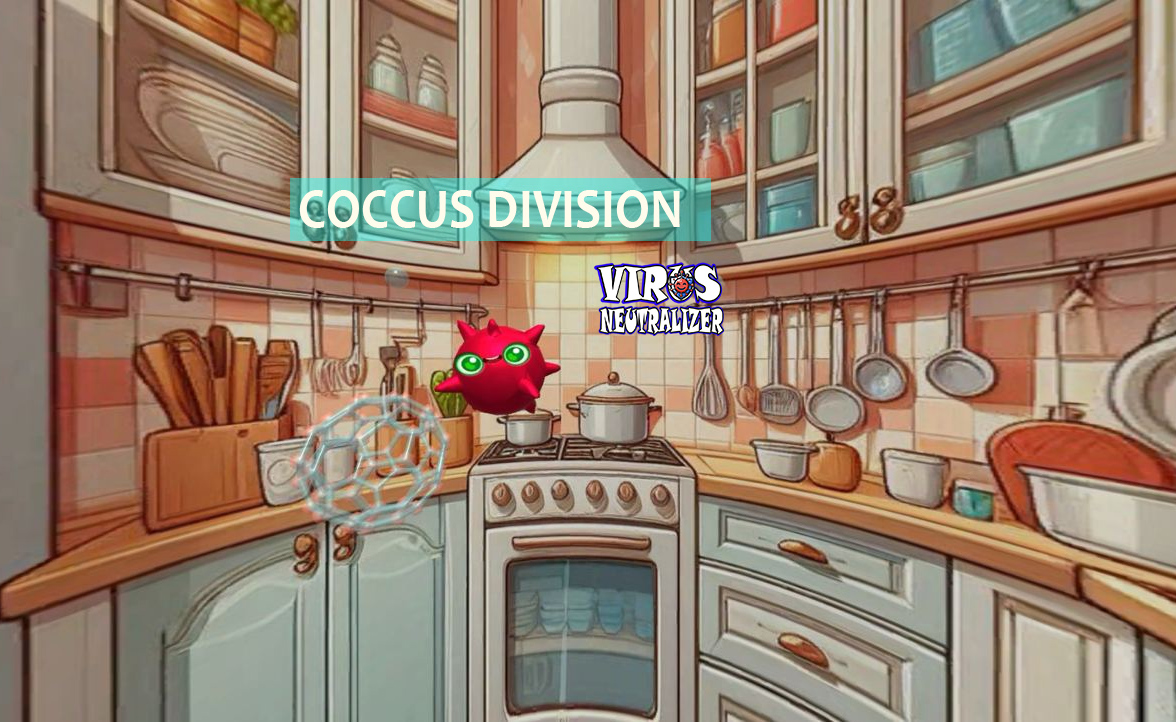Cocci Chronicles: Battling Spherical Bacteria in Gaming and Medicine
23 Nov 2024

Coccus bacteria, or cocci, are spherical microorganisms that are widespread in nature and play a significant role in both computer games and real life. In games, cocci can be presented as enemies that need to be destroyed or as objects for research. In real life, cocci are the cause of many diseases in plants and animals, including humans, and require special attention to effectively combat them.
Main features of cocci bacteria
One of the main features of cocci bacteria is their spherical shape. These bacteria can exist alone (micrococci), in pairs (diplococci), in chains (streptococci), or in clusters resembling bunches of grapes (staphylococci). This shape allows them to move easily and adapt to different environmental conditions. Cocci are easily visible under a microscope due to their characteristic spherical shape and organization.
Coccus bacteria In real life
In real life, coccus bacteria can cause a variety of diseases in plants and animals. For example, in plants, bacterial wilt caused by streptococci can lead to loss of turgor and death of plants. In animals and humans, cocci are the cause of many infectious diseases. One of the most well-known representatives is Staphylococcus aureus, which causes skin infections such as boils and carbuncles, as well as more serious diseases such as pneumonia, sepsis, and endocarditis. Another important representative is Streptococcus pneumoniae, which causes pneumonia and meningitis in humans.
Prevention measures
To effectively combat coccus bacteria, it is necessary to use an integrated approach. First of all, these are antibiotics such as penicillins and cephalosporins, which are able to destroy bacteria and prevent their reproduction. It is important to remember that some strains of cocci, such as MRSA (methicillin-resistant Staphylococcus aureus), are resistant to multiple antibiotics, making treatment more difficult. In such cases, more powerful antibiotics or combinations of drugs are used.
In addition to drug treatment, sanitation measures such as regular hand washing, surface disinfection, and the use of antiseptics play a significant role. This helps prevent the spread of infections. In agriculture, the fight against cocci infections includes vaccination of animals and improvement of housing conditions to reduce the risk of infection. Prevention and control of infection vectors are also important to reduce the risk of disease.
Conclusion
Thus, cocci-shaped bacteria are an important object of study both in computer games and in real life. Understanding their characteristics, diagnostic methods, and control methods allows us to effectively prevent and treat diseases caused by these bacteria, protecting the health of plants, animals, and humans. Effective infection control requires a comprehensive approach that includes both drug treatment and preventive measures.
Related games
Related news
🦠 Virus Neutralizer — Become a microscopic hero! 🔬 Live ga...
In this science and entertainment broadcast, you will see how you can fight viruses, bacteria and fungi in the most unexpected places - from the kitchen to space - in a fun and effective way.
Read moreMulticellular fungi: benefits, threats and their reflection...
Multicellular fungi are a diverse group of organisms that play an important role in ecosystems, industry, and human life...
Read moreSingle-celled fungi: beneficial, pathogenic and their reflec...
Unicellular fungi are amazing organisms that combine the simplicity of their structure and the complexity of their inter...
Read more




